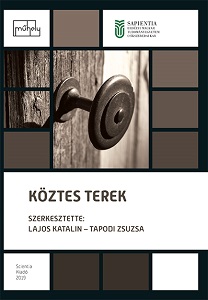A magyar és román irodalmi örökségek találkozási pontjai – egy olvasásszociológiai és befogadáselméleti kutatás vázlata
Meeting Points of Hungarian and Romanian Literary Heritage Outlines of a Sociology-of-Reading and Reader-Response-Theory Research Project
Author(s): Erzsébet Dani
Subject(s): Language and Literature Studies, Studies of Literature
Published by: Scientia Kiadó
Keywords: reading research; reader-response theory; interculturality; identity formation;
Summary/Abstract: McLuhan advises humankind to learn to forget so that the world can become a global village whose inhabitants understand each other’s culture. However, the precondition of the peaceful coexistence of Transylvania’s majority and minority cultures is not forgetting but becoming acquainted with and understanding the other besides the own. Reading each other’s literature is one means – an intermediary cultural space – of such a mutuality. It is also a linguistic and historical border transgression. It means to be confronted with literary material controlled by the language of the other and embedded in the history of the other; furthermore, the mere gesture of reading the other is border crossing in itself; and, thirdly, as for the reception side, the two former cultural transgressions can have an impact on the receiver’s value system. In the foregoing spirit, this paper undertakes to move in the direction of the concrete: it will present the outlines of an impending research, employing the methodology of the sociology of reading and reader-response theory. Using the examples of Ion and Ábel, the proposed research will survey the intercultural reading habits of Székely secondary school students, with special attention to the role that Hungarian and Romanian required readings play in their identity formation. As for the methodology and the theoretical foundation of this empirical research, we will rely on István Kamarás’s sociology of reading. In compiling the questionnaire of what is meant to be a representative survey, we can count on his personal professional assistance.
Book: Köztes terek (2019. április 26–27., Csíkszereda)
- Page Range: 269-283
- Page Count: 15
- Publication Year: 2020
- Language: Hungarian
- Content File-PDF

